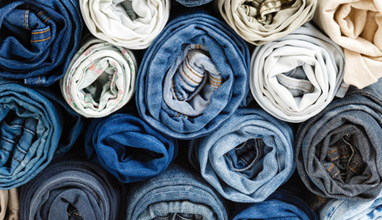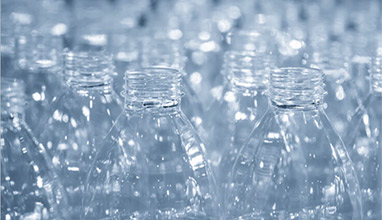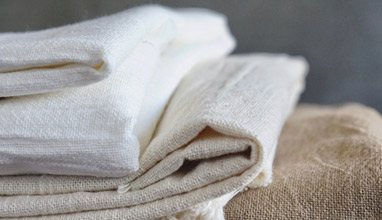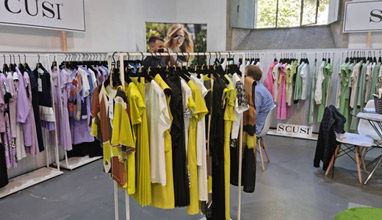Your Positive Impact on Fashion - 90 day No New Clothes Pledge
On average, Americans buy about 16 new clothes every 3 months. This phenomenon leads to an increase in the number of clothes in landfills around the world, causing significant pollution.
To conter this, Remake, a non-profit organization, got the idea to create this movement which is called #NoNewClothes in order to limit at least for a certain period the buying of new clothes to counteract the negative effect of buying new clothes.
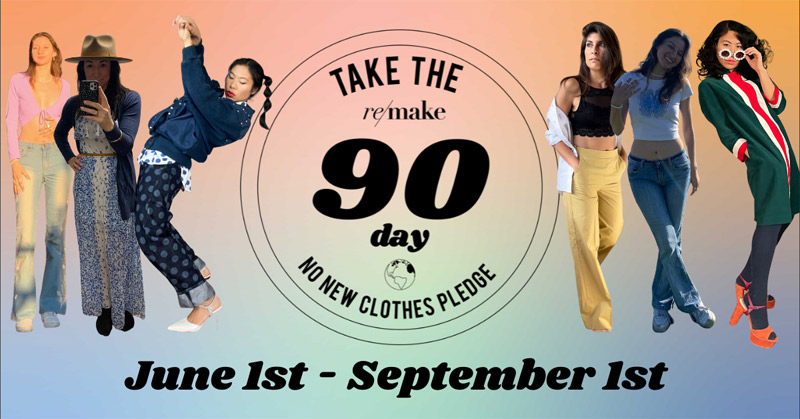
Who is Remake?
Let’s start by introducing the authors of this movement. Funded by Ayesha Barenblat, Remake is worldwide and non-profit organization engaged in a movement to restructure the textile industry with a network of citizens, press, legislators and union leaders to obtain viable solutions of the biggest problems in the textile industry
The Remake team thinks that if the workers get a decent salary, the environmental and social damages caused by the textile industry will be reduced. Higher wages would change the economic model of fashion leading companies to slow down and make less.
#NoNewClothes - take the pledge
This movement aims to pausing purchases of new clothes during 90 days from June 1st to September, 1st. and reflect the culture consumption habits and play a role in the future of fashion industry moving forward.
By engaging to not buying new clothes, whether it's buying nothing or just second hand, you reduce your carbon footprint, limit the waste you send to landfills and keep your hard-earned money away from companies that don't offer their garment workers decent wages and safe working conditions.
The adhesion can take place not only by not buying any more clothes, it may be to buy less and buy better, or to think about the women who make your clothes. It may be signing a petition for fair wages and environmentally friendly practices. Also, it can be attending events that help shed light on the injustices that happened in the fashion industry.
Result of this action
This engagement can have a real success both in terms of:
- Economic - you don’t put money into unnecessary or impulsive clothing purchases. This can only be good for your wallet. You can save approximatively $471 USD.
- Environment - the textile industry remains one of the most polluting industries. It’s responsible for approximatively 20% of the water pollution in the world.
#NoNewClothes would allow for one person to save 9,705 liters of blue water. Also, it would allow avoid to release 207 kg of CO2e into the air and 9.1 kg of waste
Last year, 1,297 joined #NoNewClothes pledge and their impact resulted in saving:
12, 587, 385 liters of blue water
268, 479 kg of CO2e
11, 802.7 of waste
$610, 877 USD
The impact for clothing manufacturers?
Stop buying clothes could harm the clothes manufacturers. In fact, there is approximately 100 billion clothing units for only 7 billion of people on earth but we can’t support all this fabrication especially fast fashion that consume indescribable quantities of blue water not to mention all the others waste. This way of thinking doesn’t follow our economic and ethical model. In other way it is important to know that the fast fashion is the main responsible for the over-consumption of clothing. The result of is 6 of 10 garments are buried or burned during the first year of its production.
The fast fashion keeps women in poverty with law wages and poor conditions. It is also harmful for the other garment markers. However, even if some jobs would be lost with a more ethical fashion, they would have been lost anyway with technological advances and the implementation of robots.
Remake and the #NoNewClothes can have a real impact on several points passing by the poor conditions of work and the law wages of manufactures in the fast fashion but also the environmental concerns about the processes of fabrication and the overconsumption as well as a gain of money.
Remake has launched this campaign for the past three summers to celebrate one of its many messages about wearing second-hand clothes:
“The most sustainable clothes are the ones already in our closets. Celebrities like Nat Kelley have joined us over the years, and yesterday Good Morning America's Ginger Zee took the challenge publicly on air”.
Hits: 8494 | Leave a comment
Tags:NoNewClothes, pledge





